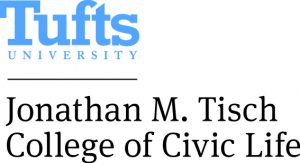Institutions include markets and companies, governmental entities, voluntary associations, labor unions, parties, networks, commons, and various hybrids of those forms. All institutions have incentives, norms, and processes that make them relatively stable. Analyzing institutions allows us to create new ones, reform existing ones, and even undermine or counter ones that we oppose.
Activities
- The American Enterprise Institute’s Near-Death Experience“The American Enterprise Institute’s Near-Death Experience,” an SNF Agora Case Study by Steven Teles and Jessica A. Gover, focuses on issues of strategy and management in a conservative think tank. From the abstract: When poor management leaves a high-profile conservative think tank in near ruins, should the board declare bankruptcy and try to regroup? Or … Continue reading
- Commons game (online version)This is a game that will play well for a large virtual group, and it is free. An in-person game is available elsewhere on this site. A useful list of other games, with reviews, is here. This game simulates: A pandemic at a university. (How much does each student comply with social distancing?) Carbon policy. (How … Continue reading
- Commons game (in person version)Lesson plans can be found all over the Internet for games that model the “Tragedy of the Commons” using goldfish crackers. This is a version used in the Introduction to Civic Studies course at Tufts. Materials: goldfish crackers (“fish”); plastic bowls (“lakes”); and forks (as tools for fishing). Rules: Each group of four people should sit in … Continue reading
- The Power CubePolitical scientist John Gaventa and colleagues have developed the Power Cube as a tool for groups to use to analyze the situations that concern them. It breaks down the forms, spaces, and levels of power and the interactions among those. The Power Cube website offers accessible guides and handouts for facilitators and participants.
- The Institutional Analysis and Design (IAD) FrameworkContents Concept As stated on the Ostrom Workshop website: The Institutional Analysis and Development (IAD) framework was designed by Ostrom and her colleagues from the Ostrom Workshop in 2005 to facilitate analysis of institution processes through which individual and collective choices occur. The IAD framework includes analyzing actors, norms, institutional settings, incentive structures, rules, and … Continue reading
Concepts
- Elinor OstromElinor Ostrom (1933-2012) was a political scientist at Indiana University and a leader of the intellectual movement informally known as the Bloomington School. She won the Nobel Prize in Economics in 2009 and was a MacArthur “genius” Fellow and president of the American Political Science Association. She directly influenced the development of Civic Studies. Contents … Continue reading
- Game theoryTo model a human interaction as a game means understanding it as a set of discrete choices made by independent parties that yield results for all (cf. Johnson 2020). A game model does not presume that the players choose privately or secretly. They may communicate and negotiate, but the game is ultimately decided by their … Continue reading
- PolycentrismVincent Ostrom, Charles Tiebout, and Robert Warren wrote that a “polycentric political system” exists when “many centers of decision- making which are formally independent of each other . . . take each other into account in competitive relationships, enter into various contractual and cooperative undertakings or have recourse to central mechanisms to resolve conflicts.” The … Continue reading
- Exit, Voice and LoyaltyIn Exit, Voice and Loyalty (1970), Albert O. Hirschman argues that people who are dissatisfied with groups of all kinds have two basic choices: Exit: Leaving the group. Then they do not have to put up with it or continue to be complicit in its actions. Exit is a human right. It can also improve … Continue reading
- Jürgen HabermasJürgen Habermas (1929-) is a German philosopher and sociologist, often seen as the leader of the intellectual movement called the “Frankfurt School” in its second generation, when he helped to shift it away from Marxism. He is often presented as a proponent and theorist of deliberative democracy, although he does not endorse all of the … Continue reading
- Elinor OstromElinor Ostrom (1933-2012) was a political scientist at Indiana University and a leader of the intellectual movement informally known as the Bloomington School. She won the Nobel Prize in Economics in 2009 and was a MacArthur “genius” Fellow and president of the American Political Science Association. She directly influenced the development of Civic Studies. Contents … Continue reading
- The Institutional Analysis and Design (IAD) FrameworkContents Concept As stated on the Ostrom Workshop website: The Institutional Analysis and Development (IAD) framework was designed by Ostrom and her colleagues from the Ostrom Workshop in 2005 to facilitate analysis of institution processes through which individual and collective choices occur. The IAD framework includes analyzing actors, norms, institutional settings, incentive structures, rules, and … Continue reading
- DemocracyThe root of the word “democracy” is rule by the people. Almost all definitions emphasize that the individuals who are part of “the people” should have equal power over important decisions. That is what it means for the people, instead of any special group, to rule. Debates constantly arise about who counts as a full … Continue reading
- Multiracial democracyThe “North Star” of the Tisch College of Civic Life at Tufts University is “building robust, inclusive democracy for an increasingly multiracial society.” This ideal combines: A commitment to democratic forms of governance; A recognition of racial inequity as a basic obstacle to full democracy; An embrace of the full creative participation of all people; … Continue reading
- RepublicanismRecent political theorists have retrospectively categorized some historical authors as “republicans.” Their lists of authors vary, but they typically include Cicero, Machiavelli, and John Adams, among others. Melvin Rogers (2020) argues that Black American thinkers before the Civil War (notably, David Walker, Hosea Easton, Martin Delany, and Frederick Douglass) drew deeply on republican thought and … Continue reading

